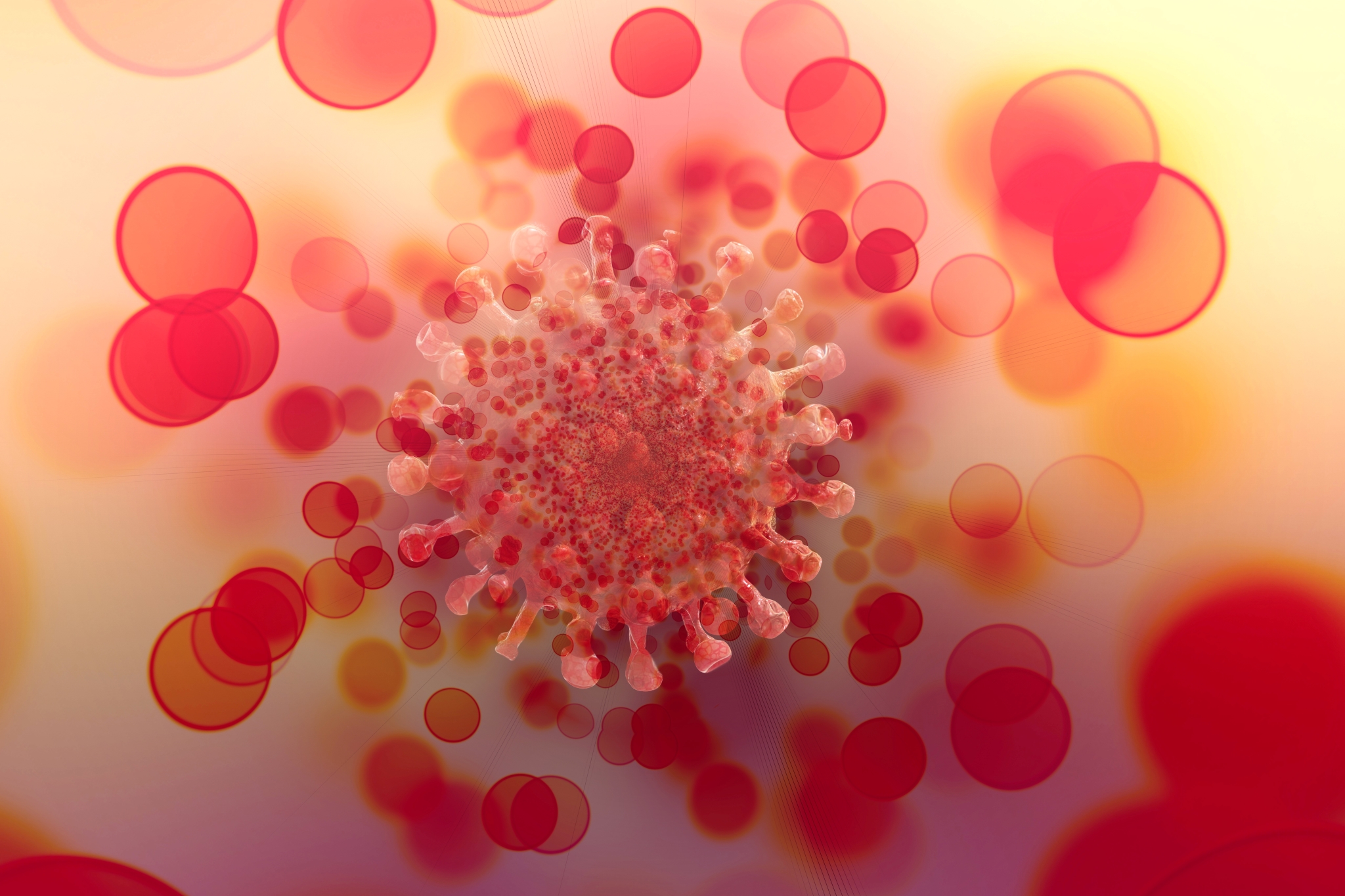When the World Health Organization (WHO) declared Omicron as a COVID-19 variant of concern on Nov. 26, the Philippine healthcare system braced itself for a dent in the country’s steadying pandemic situation.
In a webinar entitled “What’s new? Nandito na ba ang Omicron: Updates on COVID-19 Clinical Management” held by the University of the Philippines on Dec. 3, health experts weighed in on the new variant’s impact on the current pandemic response.
As of Dec. 6, the Philippines has yet to log its first case of the Omicron variant according to the Department of Health (DOH). The DOH announced on Monday that the variant was not found in the 629 samples recently tested by the Philippine Genome Center.
Still, the country has taken preemptive measures to curb the new variant’s entry into its borders. Cabinet Secretary Karlo Nograles announced on Dec. 8 that travelers who have been to France in the past 14 days are prohibited from entering the Philippines from Dec. 10 to 15. Filipino repatriates are allowed to enter if they comply with testing and quarantine protocols.
The Philippines earlier placed 14 other countries under its “red list” where travelers, regardless of vaccination status, will not be allowed entry into the country.
Variant of concern
Infectious Disease Specialist Dr. Franco Felizarta discussed the genetic make-up of the Omicron and how it affects the virus’ transmissibility and its impact on existing vaccines.
The Omicron variant was first detected in Botswana and was declared a cause of concern after only two days of deliberation in the WHO, which Felizarta said was “quite fast.” The variant is currently found in 57 countries where infections are beginning to rise.
He said that the strain, previously known as the B.1.1.529 coronavirus variant, is a cause for concern because of the substantial number of mutations that it has. He emphasized that while the Delta variant has 10 mutations, Omicron has a record of 50 mutations which may indicate an increase in transmission and decrease in vaccine efficacy.
Felizarta also noted that the “concerning” surge in Africa is happening amid “baseline” mobility restrictions.
“If you look at the epidemic curve of South Africa now, it’s already starting to surge. The deaths are still stable, but […] we have to wait for the hospitalization rates and the deaths which will take one to two weeks after,” he said.
On Dec. 6, the Philippines was lowered from “low risk” to “minimal risk” for COVID-19. This is after the country’s average daily attack rate dropped to 0.67 per 100,000 individuals from Nov. 22 to Dec. 5.
The country also recorded its lowest number of daily COVID-19 cases in 17 months, with only 356 new cases on Dec. 7.
Managing COVID-19
While the pandemic situation in the country shows promising improvements, health experts agree that this is not an excuse to be lax, especially with the looming threat of the Omicron variant.
Dr. Jubert Benedicto, head of the Critical Care Unit at the Philippine General Hospital (PGH), said that the referral hospital is preparing for the possibility of another surge even as it slowly shifts to “non-COVID mode.” He said that their team has begun taking inventory of facilities and equipment necessary in case COVID-19 cases would rise again.
“What we’re doing right now is really having a good grasp ng aming inventory in terms of equipment,” Benedicto said. “Last month, I was having a meeting with all my RTs (respiratory therapists) and with all the fellows and consultants telling them, ‘Ano ba yung kailangan natin para ‘wag tayo maging reactive just in case there will be a surge and it will hit us.”
Benedicto also gave an overview of treatments currently used for COVID-19 patients. He said that recent studies showed that the use of Ivermectin, Molnupiravir, and convalescent plasma all have insufficient evidence to support their use against the disease.
He gave a retrospective on COVID-19 protocols on managing the disease that have been implemented since the start of the pandemic last year. He noted that hospitalization algorithms are adjusted and revised upon the emergence of new evidence.
“In response to [a] surge, we would like our standard of care or standard of management not to be sacrificed,” he said.
He notes, however, that existing management flowcharts are bound to change with the introduction of the Omicron variant. Still, he believes that vaccines would work in preventing severe disease.
“We just need to have an attitude that is willing to adapt. Hindi po pwede tayong maging close-minded kasi, as what we anticipate, maybe what we know right now may change [in] the following days,” Benedicto said.
He adds that this attitude must extend beyond the hospital setting and into community systems.
“I do feel that the community can do a lot more in terms of trying to prevent individuals [from] landing in the hospitals and possibly not straining the healthcare utilization at this point in time,” he added.
Special Adviser to the National Task Force Against COVID-19 Dr. Ted Herbosa said that one of the principles of emergency medicine that he hopes to be imbibed in clinicians is to “lower the level of ambition.”
Herbosa said that in the face of new variants, clinical judgment calls are more important than standardizing protocols.
“I think you pay a doctor [for his professional expertise]. I don’t want to be treated by a protocol, I don’t want to be treated by a standard procedure,” Herbosa said. “I want my doctor to think about what my clinical problem and the research evidence that’s out there and tell me ‘This is best for you’ and I’m going to agree as a patient.”
Similarly, Benedicto said that the “art” of discussing treatment with patients has become an integral part of the pandemic response.
“You are trying to personalize your approach based on science, but it should be tempered to a huge extent, of course, by the art behind it,” he said.
Vulnerable groups
Dr. Virginia Abalos of the Chong Hua Hospital in Cebu City and Dr. Benito Atienza of the Philippine Medical Association respectively discussed how COVID variants affect pregnant women and children.
Abalos presented data showing that 88 percent of maternal deaths from COVID-19 come from unvaccinated mothers. She said that this shows how vaccination is “an act of patriotism and an act of love for our fellow men.”
She adds that based on the principle of health equity, pregnant women must be offered vaccines and medications like Remdesivir should not be withheld.
Meanwhile, Atienza emphasized that during the Delta surge, 10 percent of those affected were aged 18 years old and below. He reminded people to not be complacent since toddlers younger than four years old are ones that were severely affected.
Similarly, Abalos noted a marked difference in infections of pregnant women with the Delta variant. According to a study by the Philippine Infectious Diseases Society for Obstetrics and Gynecology, cases among pregnant women jumped from 996 in 2020 to 1,708 in 2021. She said that severe and critical cases also doubled within a year.
With preliminary data on the Omicron variant still unclear, Abalos calls for continuous adherence to health and safety protocols and enjoins ramping up vaccination programs and combatting vaccine hesitancy.
“I think we know a little more this year compared to last year, but what’s happening today is telling us that there are a lot of things that we still do not know,” she said. “As medical doctors, we really need to be on top of the problem for us to better serve our patients.” DZUP

